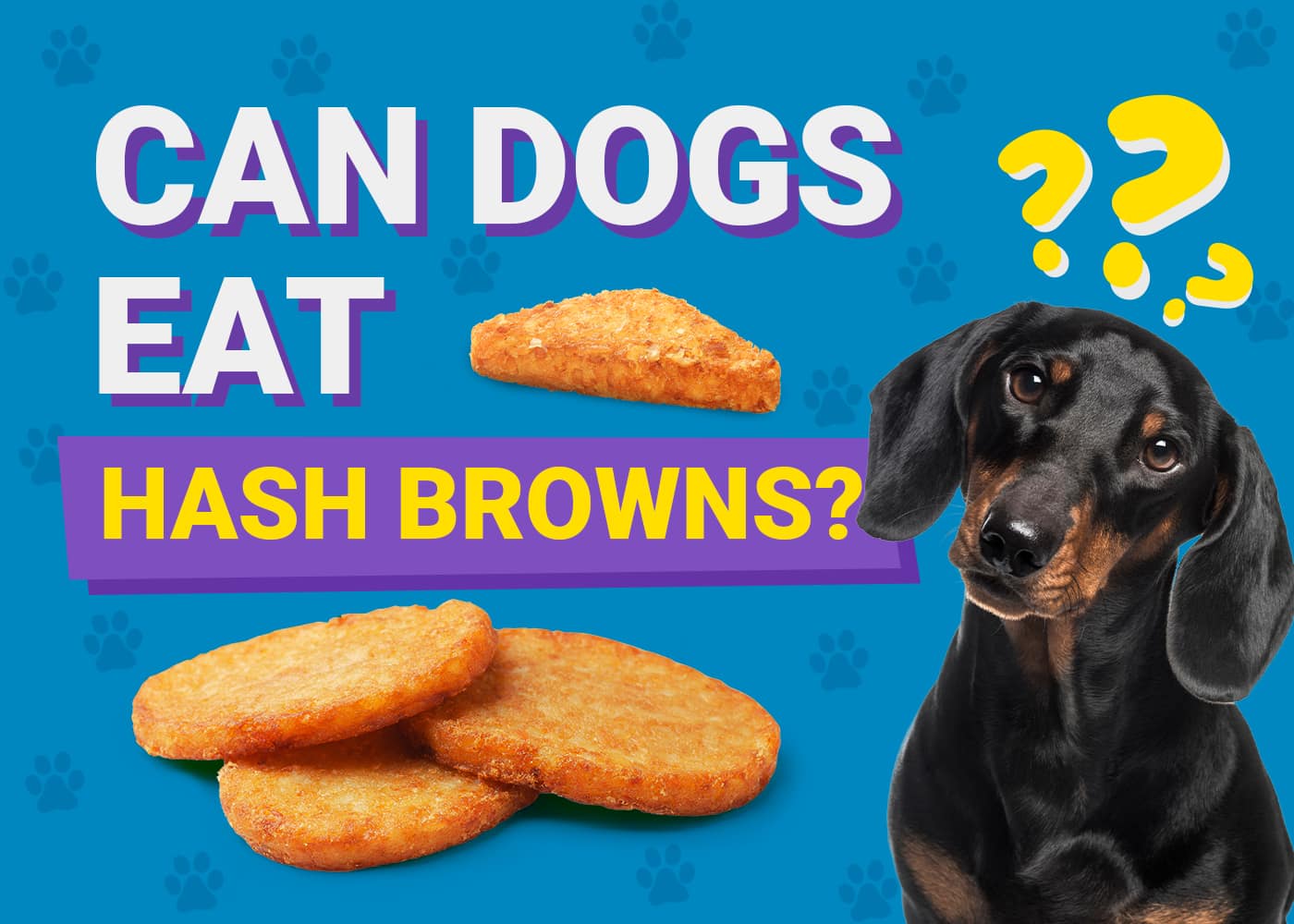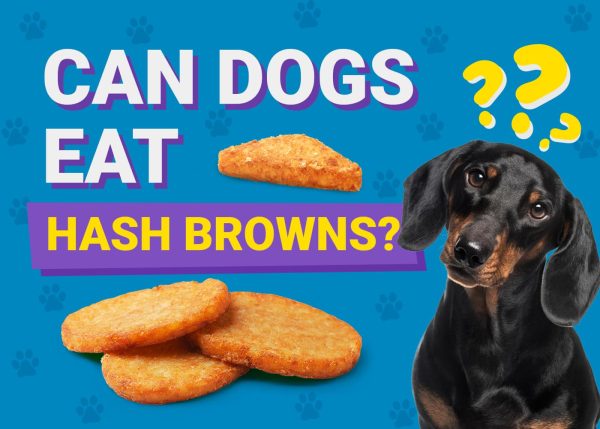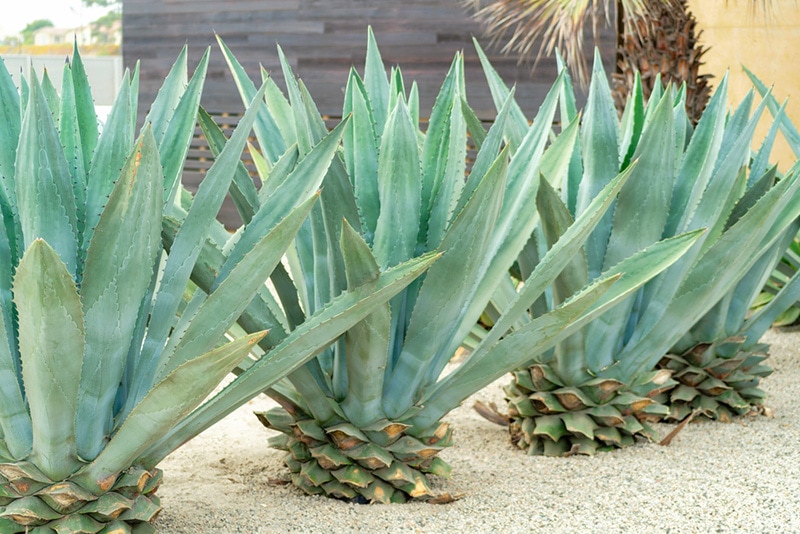Hash browns are a breakfast staple that we often eat alongside eggs, bacon, and sausage. It’s no surprise that your dog may be drooling over the smell of your delicious breakfast, but is it okay to let your pup indulge in your morning hash browns?
Not to burst your pooch’s bubble, but no dog should be allowed to eat hash browns. While they may not be toxic when served plain, they are incredibly unhealthy and do not have a place in your dog’s diet, even as an occasional treat.
In this article, we’ll talk a bit more about why hash browns should be avoided and go over some health and dietary tips to keep your dog as healthy and happy as possible.
Why Aren’t Hash Browns Healthy for Dogs?
Fat
Fat may be an important part of a dog’s diet, but the type of fat found in hash browns should be avoided at all costs. Like French fries, hash browns are often fried at high temperatures in inflammatory vegetable oils and are full of unhealthy trans fats and saturated fats. These fats have no place in your dog’s diet and could easily lead to obesity if fed regularly. Greasy hash browns could also cause your dog to experience an upset stomach or other gastrointestinal issues.
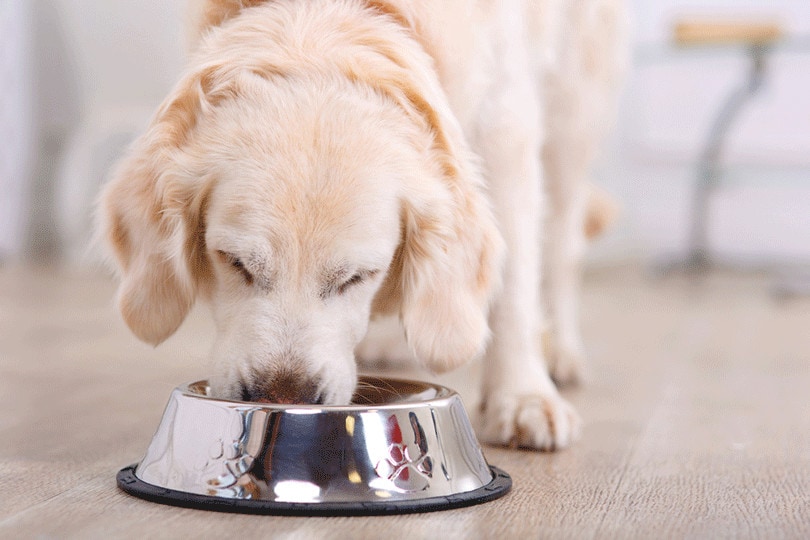
Salt
Salt is an essential part of your dog’s diet and is safe in moderation, but hash browns are often made with a high amount of salt. Since your dog doesn’t need any more salt than what is already included in its regular diet, it’s best to avoid super salty foods.
Excessive salt consumption can lead to salt poisoning which can be very serious. Signs of salt poisoning include vomiting, diarrhea, nausea, excessive thirst, weakness, lethargy, and lack of coordination. In very severe cases, seizures, coma, and death are possible. While a small serving of hash browns is unlikely to do any harm outside the occasional upset stomach, it’s best avoided altogether.
Carbohydrates
Hash browns are made from potatoes, meaning they are naturally high in carbohydrates. There’s nothing wrong with healthy dietary carbohydrates that are included in your dog’s food, but there’s no reason to add so many extra carbohydrates from human food that has been fried in oil.
Added Ingredients
The hash browns themselves may not pose a risk of toxicity, but if they include other foods that are toxic to dogs, you could be in trouble. Most hash browns are cooked with additional seasonings and are often served with other ingredients like onion, garlic, and chives, all of which are toxic to dogs. This could lead to an upset stomach, diarrhea, vomiting, and other signs of toxicity.
Why You Should Avoid Feeding Your Dog Human Food
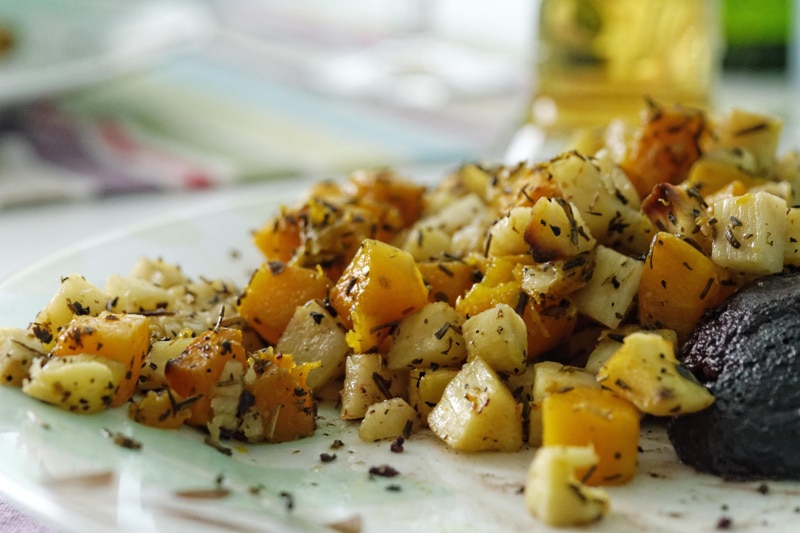
As a general rule, it’s not a good idea to offer your dog any human food right from the get-go. This may seem like a harmless act of love and a way to offer your beloved pup a tasty treat, but there are plenty of reasons why offering table scraps and other human food is a bad idea overall. Take a look:
Results in Begging Behavior
Offering your dog table scraps can very easily result in begging behavior, which is very hard to rectify and can become inconvenient and frustrating for the owners and any houseguests. Dogs may begin standing next to you as you eat, lay under the table, whine, bark, or display many other unwanted behaviors to get your attention and share your food.
If you were to feed your dog when they are begging, it only reinforces the behavior and worsens the problem. As an owner, you will have to commit to retraining and remedying the behavior, which will take a lot of time and patience. You are better off avoiding this problem altogether and keeping human food for humans and dog food for dogs.
May Cause Digestive Issues
Consuming human foods could potentially lead to digestive problems for your dog. Their systems are not designed to digest all the different ingredients that are in the everyday human diet. It’s also important to note that a lot of human food nowadays is full of sugar, carbohydrates, and fat, which are very unhealthy and could cause obesity and a variety of gastrointestinal symptoms if eaten in excess.
Unwanted Behaviors
If an owner were to regularly offer their food to their dogs, it could easily create a finicky eater that refuses to eat dog food. After being exposed to fine dining, some dogs simply don’t want to go back to eating their average, everyday kibble.
It can be difficult to remedy this issue and could lead to more concern if your dog stops eating because of it. If your dog ever experiences a lack of appetite, you should reach out to your veterinarian to first rule out any other underlying conditions.
Feeding dogs people food may also make some dogs more likely to steal food from the table, countertops, or even the trash can.
You Run the Risk of Toxicity
There are plenty of human foods that are toxic to dogs. Allowing them to eat human food regularly could easily increase the likelihood that they eat a toxic food item. Toxic foods, especially if eaten in large amounts, can be very dangerous and could wind up being a medical emergency.
Feeding Your Dog a Healthy Diet
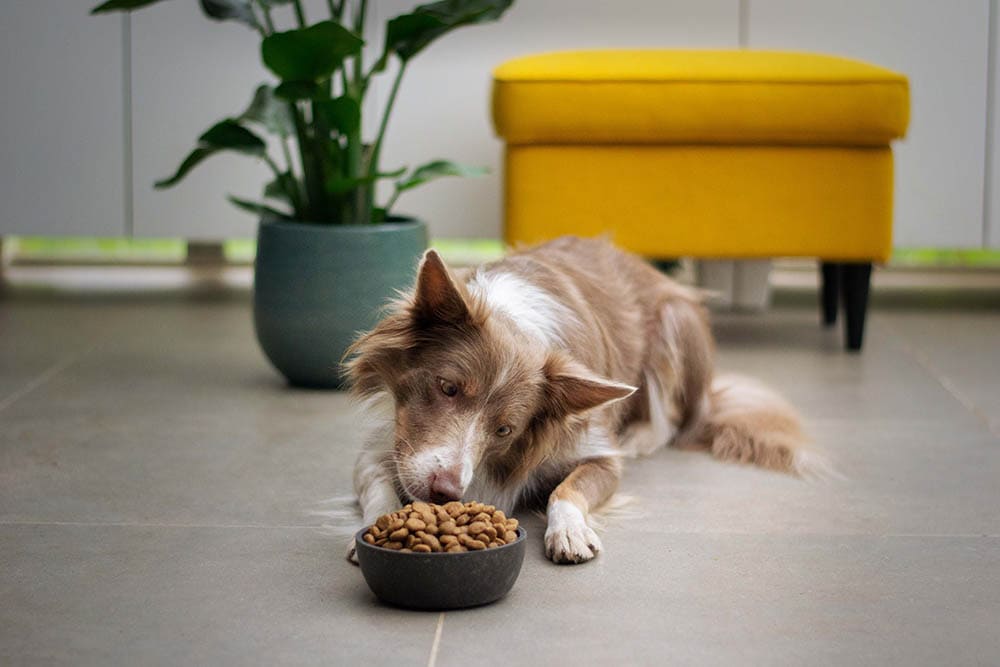
A nutritious, high-quality diet that is appropriate for your dog’s age, size, and activity level is key to ensuring their overall health and wellness. Not only should you avoid feeding human foods, but you should also ensure your dog is eating the healthiest, most well-balanced diet possible. Here are some tips to help you along the way.
Do Your Research
High-quality diets are important for both pets and people, so it’s important to find companies that put health and wellness at the forefront of their business. Before committing to certain dog foods, you should research different brands to see how they compare.
Reading reviews from fellow dog owners is a great way to get much-needed information and understand the brand’s reputation. Be sure to check for recall history and check to see if the AAFCO nutrient profiles for pet foods have been followed.
Learn How to Read Labels
Reading a dog food label can be very useful in your search for the best dog food. Having this knowledge will allow you to read and understand the full list of ingredients, the caloric content, and the guaranteed analysis to see how the food compares to competitors. The label can teach you a lot about the food and treats you are offering your four-legged best friend.
Avoid Unnecessary Ingredients
Understanding nutrition can be a bit difficult and there is plenty of controversy surrounding certain ingredients and formulations in the dog food world. It is often recommended to avoid certain ingredients such as artificial preservatives, flavors, and dyes.
It is highly recommended that you have a chat with your veterinarian if you have any questions about your dog’s diet and any ingredients that you should try to avoid.
Consider Your Dog’s Specific Needs
Your dog will have specific dietary requirements that can vary depending on its life stage, size, activity level, and overall health. Special diets or supplementation may be required if a dog suffers from certain health conditions or has specific nutritional needs. Special diets should only be offered under the supervision of your veterinarian, and you should consult with them before adding any supplements or making any dietary changes.

Talk to Your Veterinarian
Your veterinarian is familiar with your dog’s medical history and individual needs. You should always consult with them regarding any questions about your dog’s diet or overall health. Never make any changes or add anything to your dog’s diet without first talking to your vet.
Final Thoughts
Hash browns may be a delicious breakfast side, but you should avoid feeding them to your dogs. Hash browns are not considered toxic themselves but may contain seasonings or other added ingredients that are toxic to dogs. Hash browns are also full of salt, and carbohydrates, and are fried in fatty oils, which is in no way healthy for your pup.
It’s a good idea to avoid feeding your dog human foods altogether and keep them on a high-quality diet of premium dog food that is appropriate for their specific needs. If your dog were to consume anything questionable, never hesitate to reach out to your veterinarian for further guidance.
Related Read:

